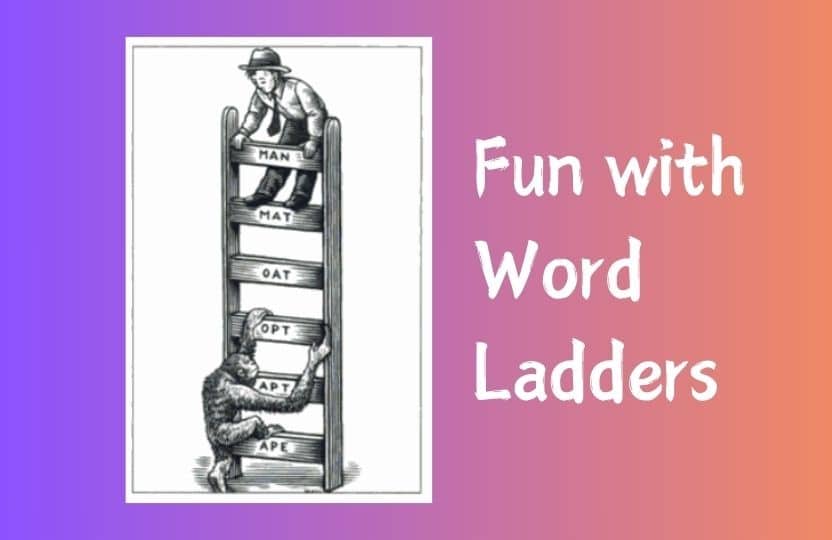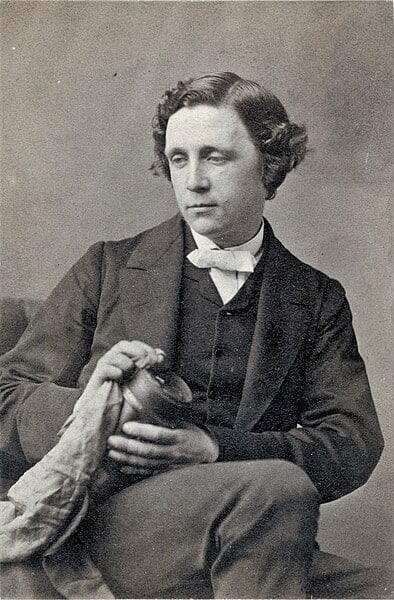
Word ladders are a great tool for helping students enhance their decoding, phonics, spelling, and vocabulary skills. Additionally, they encourage the use of problem-solving and verbal reasoning abilities.
The challenge involves transforming one word into another by changing one letter at each step to create a valid new word. For example, to change the word “name” to “tank” in four steps, you would follow this sequence: name > same > sane > sank > tank.
Invented by Lewis Carroll

Lewis Carroll is said to have invented the game on Christmas in 1877. Carroll was an English author, poet, mathematician, photographer, and Anglican deacon. His most notable work is Alice’s Adventures in Wonderland.
The first mention of the game in Carroll’s diary appears on March 12, 1878, when he initially referred to it as “Word-links” and described it as a two-player game.
In 1879, Carroll published a series of word ladder puzzles and their solutions, which he called “Doublets,” in the magazine Vanity Fair. This series began with the issue dated March 29, 1879. Later that same year, the puzzles were compiled into a book published by Macmillan and Co.
Typically, word ladder puzzles are created such that the end word has a specific relationship with the starting word, such as being synonymous, antonymous, or semantically related. This was also the approach Lewis Carroll initially used when devising the game.
Solve these word ladders
1. In 3 steps, change dog into pit
2. In 3 steps, change cat into dog
3. In 3 steps, change run into mat
4. In 3 steps, change big into sad
5. In 3 steps, change poor into good
6. In 3 steps, change sit into rut
7. In 3 steps, change hate into love
8. In 4 steps, change warm into cold
9. In 4 steps, change fold into soul
10. In 4 steps, change give into take
11. In 4 steps, change pine into rose
12. In 4 steps, change tame into wild
13. In 5 steps, change book into read
14. In 5 steps, change good into best
15. In 5 steps, change lost into find
Answers to the word ladders
1. dog > dot > pot > pit
2. cat > cot > cog > dog
3. run > ran > man > mat
4. big > bag > sag > sad
5. poor > moor > mood > good
6. sit > sat > rat > rut
7. hate > have > hove > love
8. warm > ward > card > cord > cold
9. fold > food > fool > foul > soul
10. give > live > like > lake > take
11. pine > dine > done > dose > rose
12. tame > time > tile > wile > wild
13. book > rook > room > roam > ream > read
14. good > goad > goat > boat > beat > best
15. lost > loot > foot > food > fond > find
